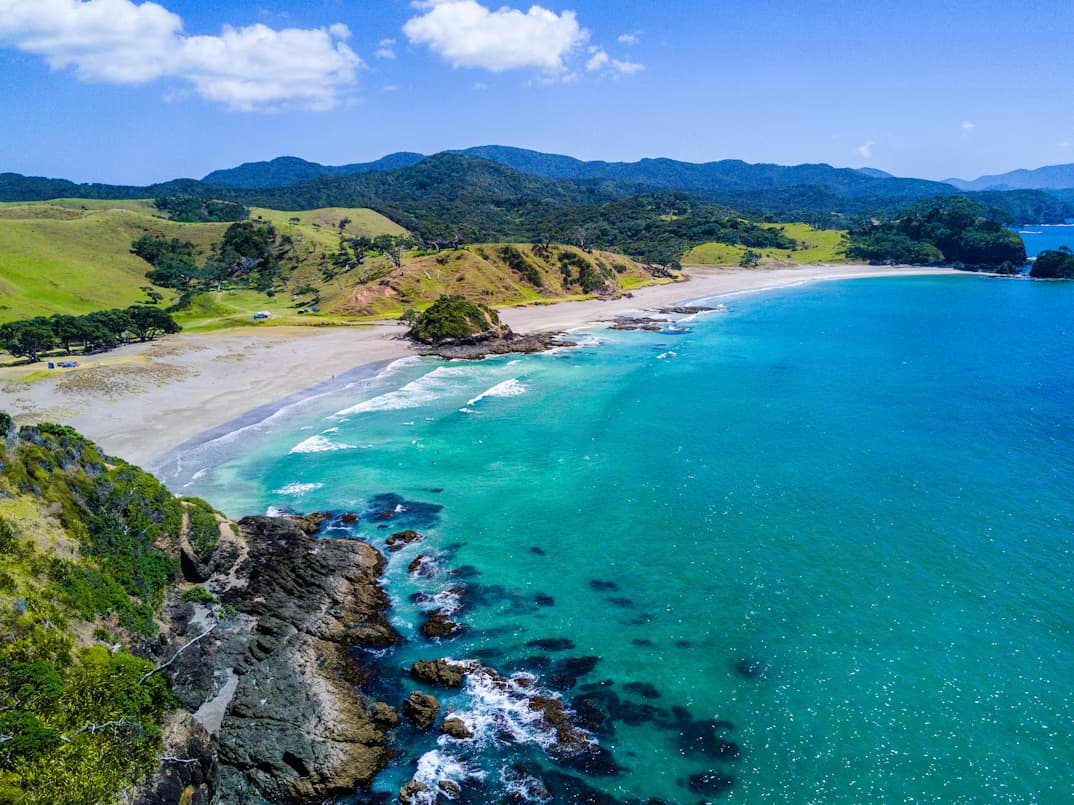Best Time to Visit New Zealand
Planning a trip to New Zealand? Choosing the best time to visit New Zealand can make all the difference in experiencing its breathtaking landscapes, adventure sports, and cultural festivals. Whether you are looking for summer adventures, winter skiing, or off-season tranquility, understanding the seasons and weather patterns is key to planning the perfect vacation.
New Zealand’s climate varies significantly between the North and South Islands. Summer (December to February) is ideal for beach lovers and hikers, while winter (June to August) is perfect for snow sports enthusiasts. Shoulder seasons offer fewer crowds and better travel deals. For detailed climate information and seasonal guides, visit NewZealand.com Weather Guide.
Let’s explore the seasonal highlights, ideal travel months, and expert tips for making your New Zealand trip unforgettable.

Seasonal Highlights in New Zealand
Summer (December–February): Ideal for beach activities, hiking, and exploring cities like Auckland, Wellington, and Christchurch. Expect long, sunny days perfect for sightseeing, water sports, and road trips along the famous Scenic Routes of New Zealand . Summer is also festival season, with events like the Auckland Arts Festival and the Rhythm and Vines Music Festival drawing crowds. This is a great time for family vacations, outdoor adventures, and enjoying New Zealand’s stunning coastal landscapes.
Autumn (March–May): Enjoy colorful foliage, wine tours in regions like Marlborough, Hawke's Bay, and Central Otago, and fewer tourists at popular attractions like Rotorua and Queenstown. Autumn offers cooler temperatures, crisp air, and perfect conditions for photography and scenic drives. Adventure seekers can still enjoy hiking, kayaking, and wildlife tours while benefiting from lower accommodation rates compared to peak summer months.
Winter (June–August): Snow sports in Queenstown, Wanaka, and the Southern Alps are in full swing. Cozy lodges, hot springs, and winter festivals make this season magical for couples and families seeking a winter wonderland experience. Popular activities include skiing, snowboarding, ice skating, and scenic helicopter flights over snow-capped mountains. Winter is also ideal for wildlife spotting in national parks, with fewer crowds at major tourist sites.
Spring (September–November): Blooming gardens, mild temperatures, and adventure activities like bungee jumping, skydiving, and river rafting make spring an excellent time for thrill-seekers and nature lovers. National parks like Abel Tasman and Fiordland are lush and vibrant, perfect for hiking and photography. Spring festivals, including the World of WearableArt in Wellington and the Christchurch Arts Festival, add cultural charm to outdoor adventures.
Travel Tips and Planning
Traveling in shoulder seasons can help you save on flights and accommodations. Booking early is recommended to get the best deals, especially during peak summer or winter months. Use fare comparison tools, sign up for airline alerts, and consider alternative airports for cheaper fares.
For adventure travelers, check regional weather forecasts, as some activities depend on specific seasonal conditions. Cultural festivals, like the Auckland Lantern Festival or Queenstown Winter Festival, add extra excitement to your trip.
Conclusion
Choosing the best time to visit New Zealand depends on your interests, budget, and preferred activities. Summer for adventure and sun, winter for snow sports, and shoulder seasons for fewer crowds and better deals. Planning ahead ensures a memorable and enjoyable New Zealand experience.
FAQs on Visiting New Zealand
1. When is the best month to visit New Zealand?
December to February for summer adventures, or June to August for winter sports.
2. Can I visit New Zealand in the shoulder seasons?
Yes, March–May and September–November are perfect for fewer crowds and lower costs.
3. What is the weather like in New Zealand?
Varies by region; North Island is milder, South Island experiences colder winters and snow.
4. Are there travel deals for New Zealand?
Booking early, using airline alerts, and traveling in shoulder seasons often yield the best deals.
5. What activities are best in each season?
Summer: hiking and beaches; Winter: skiing; Spring/Autumn: sightseeing, photography, and wine tours.